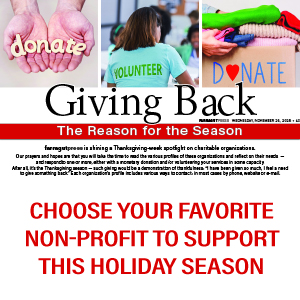Rotarians told human trafficking continues in United States
Slavery still continues in this country, Cynthia Deitle, Federal Bureau of Investigation special agent, said.
“Trafficking is slavery. That’s it,” Deitle said. “It’s forcing someone to work against his or her will.”
Kate Trudell, executive director of Community Coalition Ag-ainst Human Trafficking; Brooklyn Sawyers, assistant U.S. Attorney for Eastern District of Tennessee, and Deitle addressed human trafficking to Rotary Club of Farragut members Wednesday, May 25.
The speakers talked about their efforts against trafficking and ways ordinary citizens can identify and combat the problem.
“The problem of human trafficking is real and it’s in our community,” Betty Duncan, Rotary Club member, said while introducing the speakers.
“People are being forced to live a life they don’t desire in violation of the U.S. Constitution,” Sawyers said.
Deitle provided a handout that stated 21 million people are victims of human trafficking globally. It stated 68 percent are victims of forced labor and 22 percent are victims of forced sexual exploitation.
“If you think you see something, call Cynthia,” Sawyers said. Deitle’s number is 865-602-7207 and she can be contacted by e-mail, Cynthia.Deitle@ic.fbi.gov.
Deitle also provided Tennessee Bureau of Investigation human trafficking hotline, 1-855-55-TN-HTH.
Introducing the other speakers, Trudell said Sawyers handles all the human trafficking cases in this district. She said Deitle had worked on human trafficking investigations in different cities before coming here.
Trudell said her organization had four main goals. The first was raising awareness about the problem of human trafficking.
The second was training and equipping responders who would be the first to come into contact with victims.
“We need to be training people who work in hotels, work in truck stops, work in ER,” she said.
The third was a task force of police and local organizations she said would weave together services for victims and support prosecutions.
“We try to clear a sort of path for victims,” Trudell said describing her organization’s forth goal. Currently in Tennessee, she said there were at most 50 beds dedicated to human trafficking survivors, which she said was not enough.
“What’s on their minds is ‘Can I have a glass of water?’ Can I have a meal.’
“Our ability to get information from them or figure out how to best support them is really limited until we can support all those immediate needs,” she said.
Trudell advised Rotarians to purchase fair trade items and support organizations dedicated to fighting human trafficking.
She said people should look in motels and truck stops for signs of physical abuse, signs of drug and alcohol use, lying about age and tattoos related to sex, bar codes or money on the face or neck.
“Maybe some of those things individually might not cause you a little concern but maybe two or three of those things put together might give you pause,” Trudell said.
“If you call it in and nothing is wrong, no harm done, but if you don’t call it in and potentially there was someone in need, then boy, have we missed something.”


